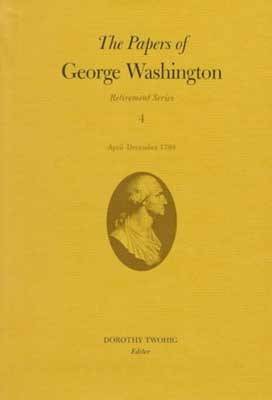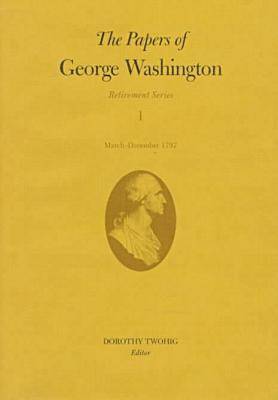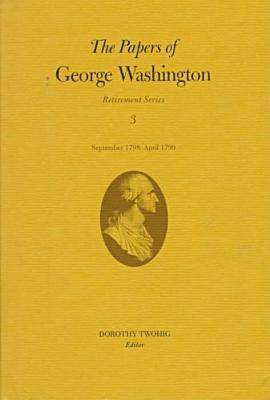Retirement
3 total works
The Papers of George Washington v.4; Retirement Series;April-December 1799
by George Washington
In the spring of 1799, the relaxation of tensions between France and the United States allowed Washington to redirect his attention to his personal affairs. He drew up a new will that summer and made arrangements for the breakup of the estate he had amassed in the course of his life; but he also kept his gaze on the future, drawing up extensive plans for farming at Mount Vernon in 1800, the management of which he planned to take on himself. Washington also supervised the compilation of a comprehensive list of his Mount Vernon slaves, while at the same time making plans for their eventual freedom. Washington died at Mount Vernon on 14 December, behaving with a courage that was witnessed by his friend and secretary, Tobias Lear, whose accounts of the event bring the volume to a close.
The Papers of George Washington v.1; Retirement Series;March-December 1797
by George Washington
During the first ten months of Washington's retirement, Washington was, as he said, busier than ever before, breaking in a new farm manager, repairing and refurbishing long-neglected buildings, hiring new overseers and a new gardener from Britain, and most difficult, and perhaps most important of all, getting a proper cook for Mrs. Washington.
The Papers of George Washington v.3; Retirement Series;September 1798-April 1799
by George Washington
In the fall of 1798, Washington was immersed in the business of creating a military force to deal with the threat of an all-out war with France. A clash over Alexander Hamilton's rank in the army led Washington to contemplate resignation of his own post as commander in chief of the army, and the resolution of this affair brought no opportunity for rest as Washington engaged in the tedious task of finding officers for the new military formations. Despite all of this he still found time in the months that followed to build houses on Capitol Hill in Washington, D.C., seek the funds to put his financial affairs in order, oversee the marriage of Nelly Custis to Lawrence Lewis, and lament the divided state of American politics.


